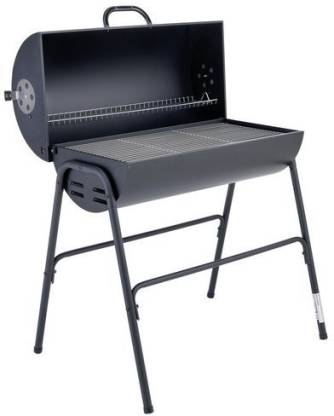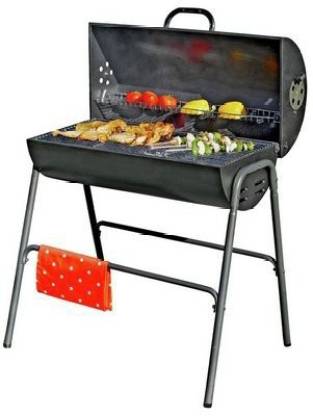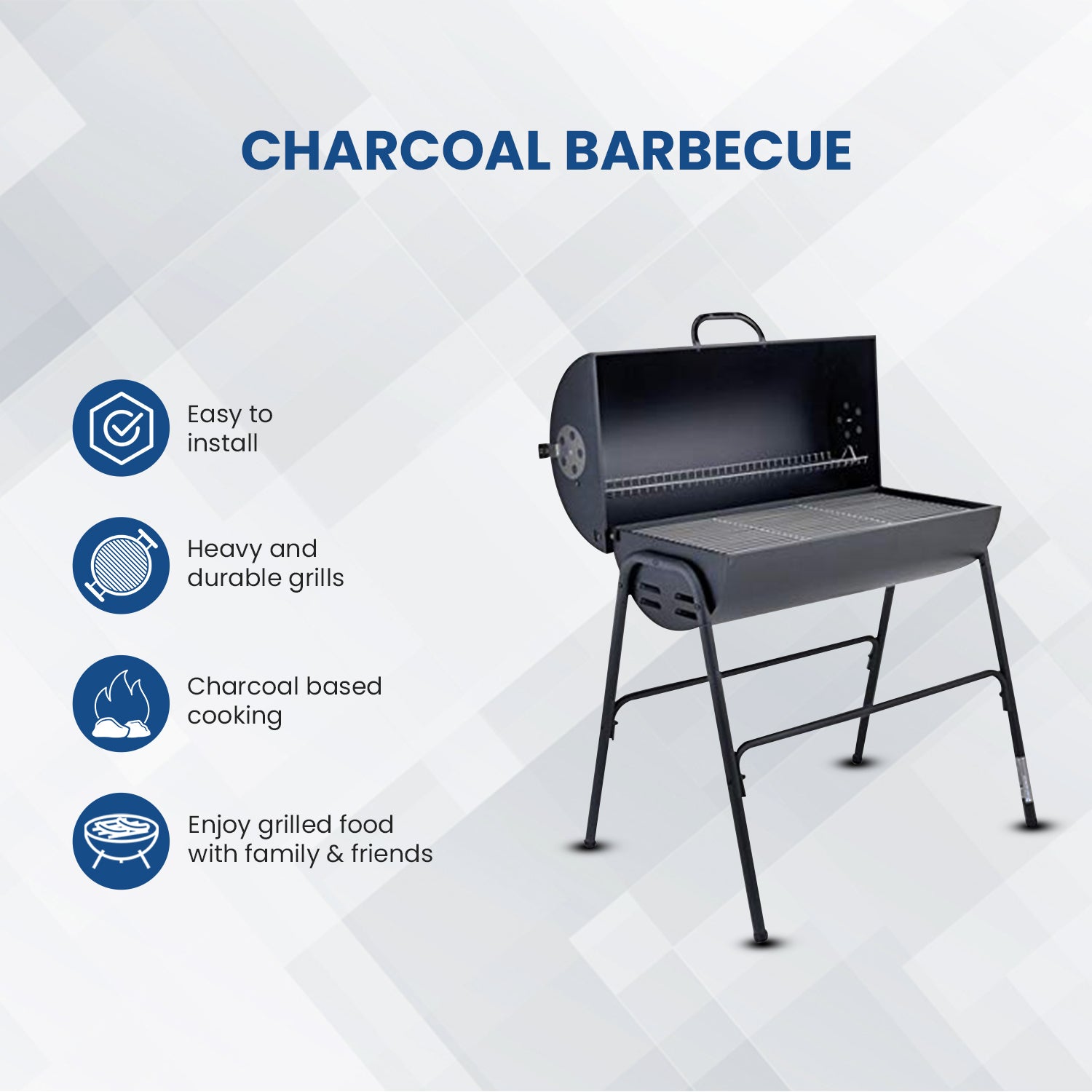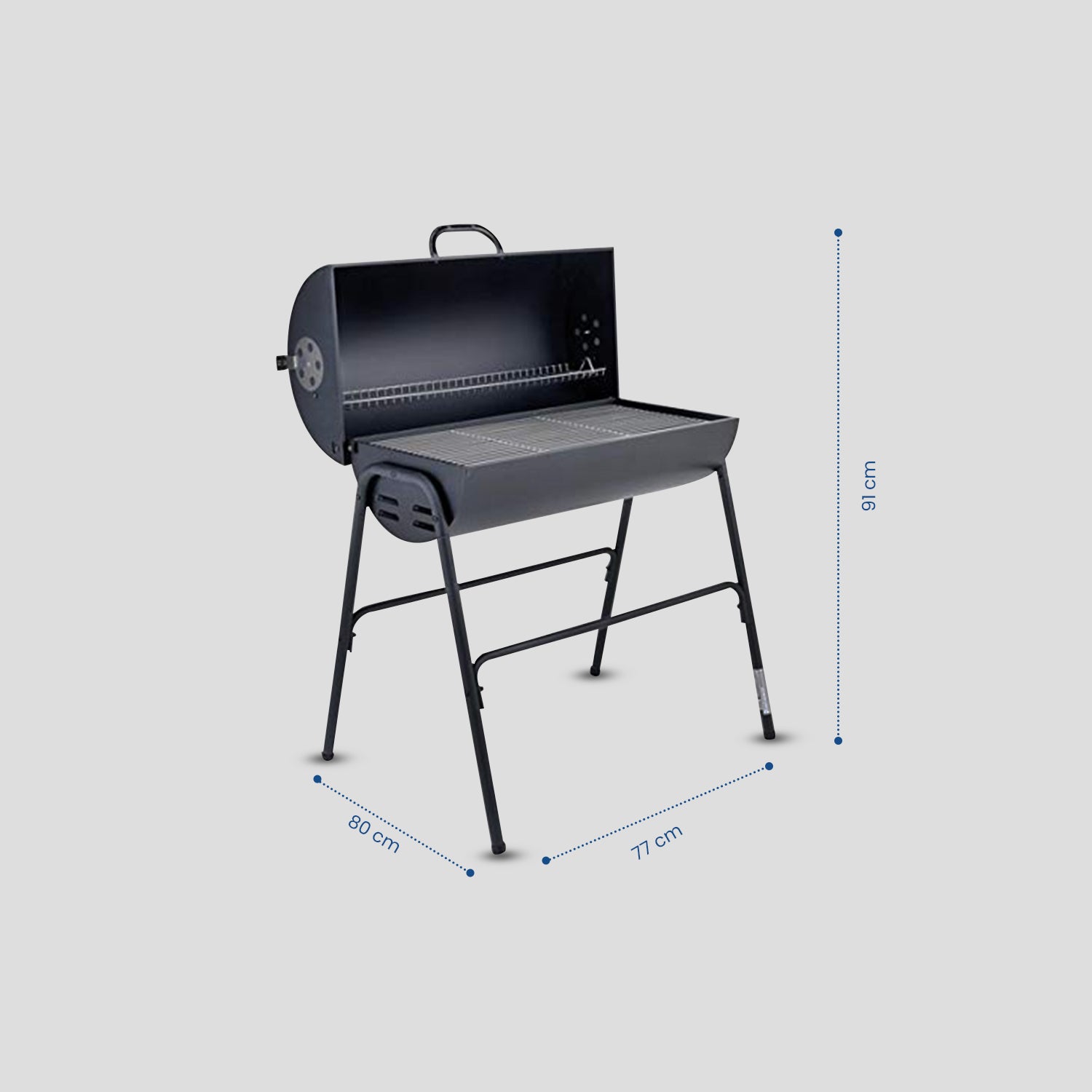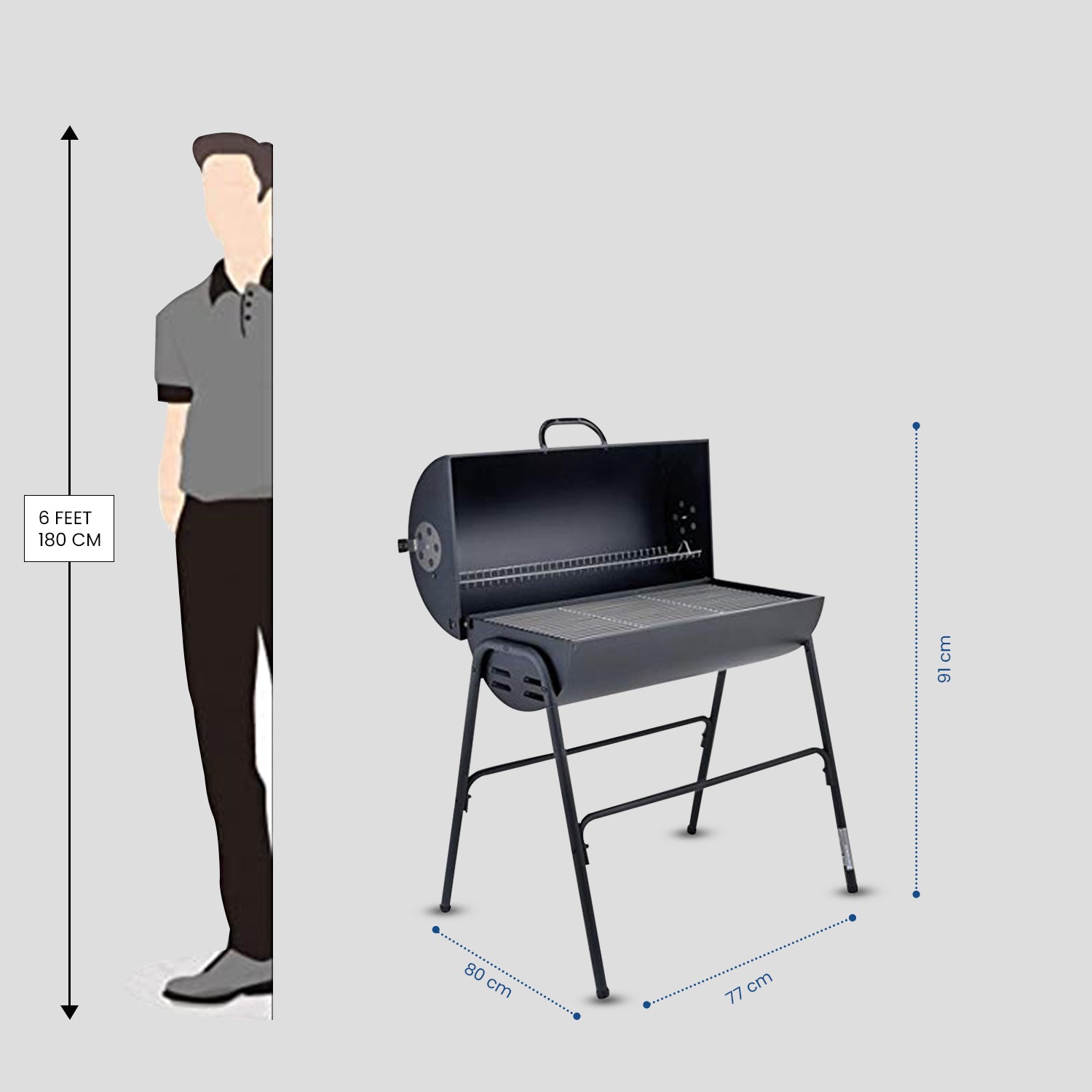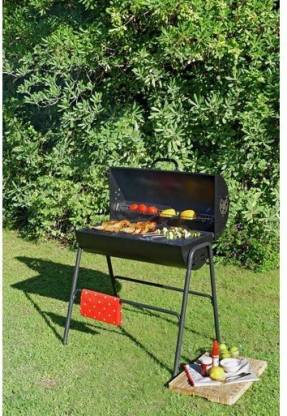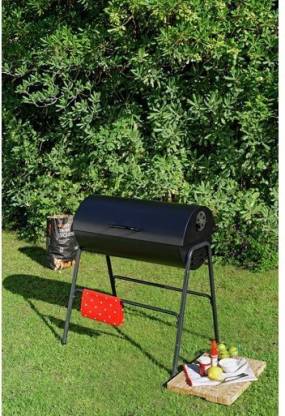Description



- Charcoal-based Barbeque
- A large cooking area
- Natural smoky flavors
Details
Charcoal-based Barbeque gives the perfect charred flavors to your recipes. You can control the temperatures inside the Barbeque using the drum barrel vents. It's also equipped with a chrome-plated warming rack, to keep food warm while you cook the next round, Our Easy Drum Barbeque is one of its kind in India.
Features
- Size of cooking area 75 x 31 cm(large enough for big get-together). The cooking Height is 91 cm from the ground up.
- Charcoal-based Barbeque gives the perfect charred flavors to your recipes.
- The drum barrel vents can control the air circulation and improve the burning efficiency of charcoal, the grill provides even heat and ensures the proper cooking of food.
- The spacious cooking area can grill or smoke, easy enjoy double flavor delicious food! With the warming rack, you can put grilled food on the shelf to keep it warm without worrying about it being burnt.
- When it comes to flavor, what you get on a Barbeque, you tend not to get anywhere else. Intense heat and flames will cook your food differently than they would on a stovetop or in the oven, even if you use liquid smoke. They caramelize the surface while keeping juices in, giving a different taste and texture. If you choose to use a charcoal or woodfired grill, then you also get those tasty, natural smoky flavors.
Product FAQs:-
-
Do I need to pre-season my new smoker?
Generally, not really. Many grillers swear by the practice. This ultimately depends on the smoker itself. Pre-seasoning (in this context) is simply meant to remove oils, dust, and another debris leftover from the manufacturing process. Depending on who you ask, these are things that can be easily handled by hot and soapy water, a clean sponge, and a pinch of elbow grease. The included owner’s manual will lead you in the right direction either way. On occasion, a manufacturer’s recommendations buck tradition, so always read up on their maintenance suggestions before the first operation.
-
How much charcoal or wood should I need per hour?
This depends on your temperature goals: the hotter the heat, the more you burn! For slow cooking and smoking, you shouldn’t have to go through much charcoal —especially if you’re using lump charcoal, which should reliably burn for 4–6 hours (you are using lump charcoal, right…?). As a rule of thumb, it’s easier to build heat than lose it; start off small with 15-20 lump coals, or 2-3 wood chunks, then add as needed to reach temperature. Once the fire is done, maintenance could be as easy as another 5 coals at a time when the hour’s up (or 1-2 more wood chunks). Don’t use wood chips for this. Fire will burn through two batches by the time your hour’s up. -
Where’s the best spot to set up my smoker?
You’re looking for three big ones here: safe from the elements, plenty of airflows, and near nothing combustible. Mastering the art of delicious, wispy blue smoke (for our purposes, the best smoke there is!) will require ample access to fresh air as your grill needs it. Meanwhile, your loved ones — and you, we’d assume — may find a low, thick cloud of smoke a bothersome experience, whether it’s from constraining your smoker’s emissions or daringly incorporating your home as a fuel source. -
What’s the best way to control airflow?
Aaron Franklin, in his Meat Smoking Manifesto (p. 48), is all about airflow — he calls it the “most important characteristic” for a smoking pit. Start with a good fire, built with air gaps to encourage a consistent influx of fresh oxygen. Minimize things that would block circulation, such as aluminum foil on your racks (water pans and drip pans are okay — they serve an indispensable function and don’t create such a physical wall). Beyond that, it takes fine-tuning your intake and chimney vents, which inevitably takes practice… Once you get it down, though? The results will speak for themselves.
-
How often should I clean my smoker?
Everything that touches food should be taken care of after cooking. Beyond routine maintenance, consult your operation manual. If you’re reading this guide and firmly in the “Well, I don’t have a manual yet” camp, this often varies from “twice a year with a really good scrub-down”, to “not until necessary”, when the cooking chamber has started hoarding a creosote buildup or accumulating grease splatters like a treasured binder of baseball cards.

